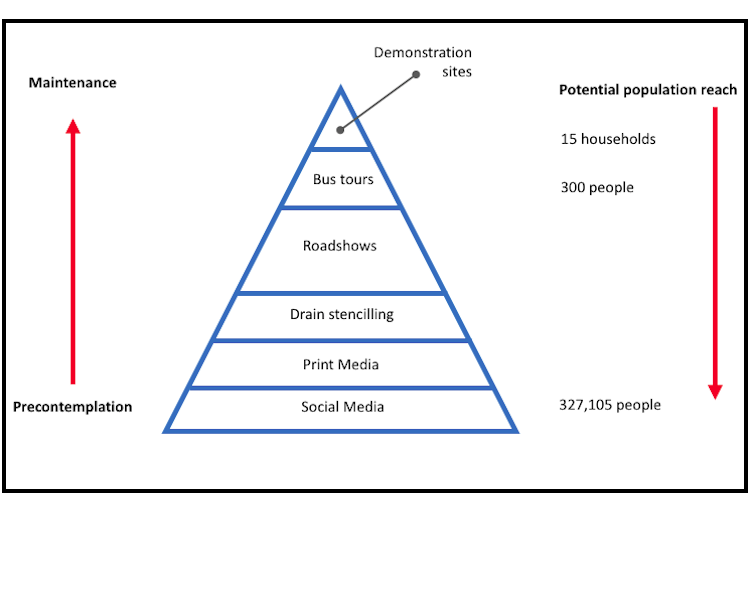Theory of Change to assess the ACT H2OK program
About This Project
The Canberra Better Suburbs Statement found that healthy waterways were essential for a liveable suburb and a liveable city as a whole. The ACT Healthy Waterways Project supports the delivery of a liveable city as it will improve the quality of water entering ACT lakes and waterways.
The H2OK program sits within ACT Healthy Waterways and is specifically focused on behavioural change among the community. Its premise is that people do not realise that their actions (such as washing debris down stormwater drains) can have direct impacts on the health of their local waterways. The H2OK program focuses on three segments: urban residents; rural residents; and industry. Success in this program will be measured by healthier waterways through education and behaviour change.
Mosaic Insights was engaged by the ACT Government Directorate of Environment, Planning and Sustainable Development to assess the current state of the H2OK program and activities through the Stages of Change Theory of Change model.
The H2OK program activities analysed were the demonstration sites, demonstration site bus tours, roadshows and education events, drain stencilling and DrainART, social media, traditional media and others. To assess these, Mosaic Insights used qualitative and quantitative data sources such as surveys, Google Analytics, social media statistics, media performance reports and the H2OK Monitoring and Evaluation Framework.
Activities with the smallest reach (demonstration sites) were the most likely to produce lasting behavioural change among participants. In contrast, social media (Facebook) had the greatest reach, but the smallest likelihood of changing behaviours. Mosaic Insights suggested program optimisations and gave timeframes of when behavioural change could be achieved through analysis of an analogous program.


